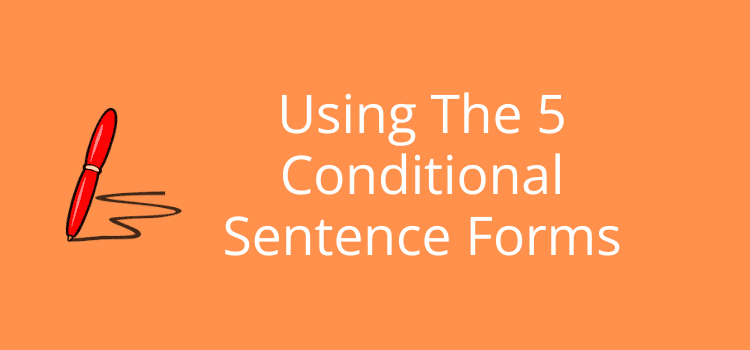
I like to write, and I like writing have different grammatical meanings.
Of course, the word like has a lexical meaning. It means to find agreeable.
When you think of the meaning, you usually rush off to a dictionary to look up a word. But do you think about grammatical meaning in your writing?
If so, or not, how do you look up a grammatical meaning?
Meaning in grammar
A dictionary won’t help you find the definition of a complete sentence or clause.
The only way to discover meaning is to use a good English grammar reference book.
For English speakers, basic grammar rules of the English language are ingrained and are a reflex action.
But how often do you question your reflexes when you start writing?
A lot of people tend to write as they speak. But we don’t always speak in grammatically correct phrases.
We all make little or big, habitual mistakes when we speak.
However, in writing, little things matter.
Splitting infinitives, ending a sentence with a preposition, or using subject-verb order in a question are grammatical errors that can stand out very badly.
We also tend to speak in short, incomplete sentences or clauses, unlike in writing, where we use long, complete sentences far more frequently.
Checking for meanings of parts of speech, which is, in fact, what grammar is, takes time and patience.

Learning grammar again for your writing
There are basic grammar rules, such as those that apply to singular and plural verb agreement, uncountable and countable nouns, the use of an object, and possessive or personal pronouns.
These rarely cause problems for writers in use or meaning.
Most of them are easy to check and correct.
However, back to the title of this article and a few simple words that can cause confusion for new writers.
Correct use of the gerund and the infinitive with preference verbs is one of the grammatical forms that can pose problems for inexperienced writers.
You may think the meaning is clear and feels great in a sentence you write. But this is not always true.
I see many author bios with one of these two short phrases.
So, it makes for a perfect example.
But what does each sentence mean?
Let’s look at the possible meanings of these two sentence examples below.
I like to write.
I like writing.
Is there a difference in meaning between these two simple sentences?
Most definitely, yes.
Using the gerund
Almost all preference verbs or preference adjectives and clauses take the gerund.
This is because the gerund is a verbal noun, which can always replace a noun.
Therefore, it expresses a preference for something.
Think gerund, think chocolate, because they are interchangeable. I like chocolate, and I like writing share the same meaning.
Verbs such as adore, detest, dislike, enjoy, don’t mind, and loathe, or phrasal verbs like keen on, can’t stand, wild about, or fond of, always use the gerund that is similar to a noun.
I enjoy writing.
I enjoy wine.
I adore reading.
I adore chocolate.
I can’t stand working on the weekend.
I can’t stand trains that are late.
I don’t mind waiting for you.
I don’t mind winter.
Using the gerund or a noun after a preference verb or clause will always have the grammatical meaning of something, or an activity, that you enjoy or love, hate, or prefer not having or doing.
You also use the gerund in participial phrases.

The use of the infinitive changes the meaning subtly
Why do you write?
To sell books and make money.
When you use the infinitive after certain preference verbs, the meaning changes to the sense of the answer above. Instead of preference, we now have a reason.
For three preference verbs, like, love, and hate, the infinitive can follow them to express a reason why we do something.
It cannot replace a noun, as is the case with the gerund.
Remember the word chocolate I mentioned earlier that can replace the gerund?
Well, you can’t replace the infinitive and say, I like to chocolate.
I like writing, and I like to write are different
Here are some examples of the difference in meaning.
I like writing. Meaning: I do it with a passion. I love it. I can’t go a day without writing.
I like to write. Meaning: Because it relieves my tension. Because I can close the door and tell my kids to keep quiet.
Because it is the only way I can escape from reality. Because I sell books and make money.
With an extension to the phrases, the different meanings are even more evident.
I like writing early in the morning. Meaning: It’s quiet and peaceful, and I enjoy listening to the birds singing.
I like to write in the morning. Meaning: Because I have to start work at nine, so it’s my only chance to write.
With the two verbs love and hate, there is also a similar difference in meaning.
I hate ironing. Meaning: It would be your preference not to do it.
I hate to tell you this, but you have body odor. Meaning: I’m sorry I have to say this.
I love chocolate! Meaning: You want more and more of it.
I love to have choices in life. Meaning: Because it gives you more freedom.
What do you prefer?
Lastly, there is one preference verb that takes both the gerund and the infinitive but without changing its meaning.
Because the verb to prefer has the distinct meaning of expressing a preference, its meaning never changes.
I prefer writing late at night.
I prefer to write late at night.
These two sentences have the exact same grammatical meaning of expressing a preference. The verb to prefer cannot express reason.
What would you like to do?
However, never confuse the preference verbs noted above when they are used with the addition of the modal verb, would.
The word would changes the grammatical meaning to express a wish, a hope, a fear, or a desire.
As soon as you add would, the infinitive is always used for all preference verbs.
I would like to write a book.
I would hate to get arrested.
I would love to get published.
How to make the correct grammatical decision
With all verbs of preference, it is almost always better to follow with the gerund.
This means that it is something that is a pleasure or enjoyable or not enjoyable. Think of chocolate if ever you are in doubt.
If you are writing articles, you will generally use the gerund form.
The only times when you should consider using the infinitive is when you want to expressly state a reason for your preference, and then only with like, love, or hate.
Therefore, the answer to the title of this article is not, I like to write. It is I like writing!

Investigate and be curious about grammar
In other parts of speech and grammatical forms, there are decisions to make regarding the precise meaning of a clause or sentence.
There is often some confusion about when to use the simple past or present perfect or which future form to use.
As a little brainteaser, can you spot the grammar differences and subtle changes of meaning in the following few sentences?
What grammar structure is at work here?
I recommended that he take a grammar course.
I presume he takes a grammar course.
It is absolutely necessary that he take a grammar course.
We believe he takes a grammar course.
I insisted he take a grammar course.
I don’t know if he takes a grammar course.
Three of the sentences above use the subjunctive mood.
It is often used to express doubt, wish, regret, request, demand, or proposal.
Understanding grammar
The only way you can understand how grammar works is to grab a good grammar reference book and start reading and learning.
One of my favorites is Michael Swan’s Practical English Usage because it is written in easy-to-read plain English, and the grammar topics are in alphabetical order.
Read it and then apply your new knowledge to your writing.
If you prefer to learn online, there are many very good grammar checkers that can also help you correct common grammar mistakes and give an explanation for the errors it finds.
In conclusion, never trust that how you speak can be transferred totally into how you write.
Double-checking or investigating your grammar use is never a waste of time.
You should also pay attention to weak words that you might use by habit.
If you think it is fun to write, then you should also make refreshing your grammar knowledge fun too.
It will help you write better articles, blog posts, and books.
If you do, you will be on your way to becoming a much better writer.
Related reading: If You Care About Your Grammar, Then You Care About Writing
Share This Article



I’m Spanish and English is not my mother tongue.. Your article has just made me understand the whole thing. I found it extremely useful. Thank you very much,
the correct one for me is : I LOVE writing. ;) isn’t it?
Yet another great article! I especially like the examples above!
Thank you.
Definitely the correct answer! :)
Thank you so much for this very helpful post. There is much that I have forgotten over the years. This is a much needed refresher post.